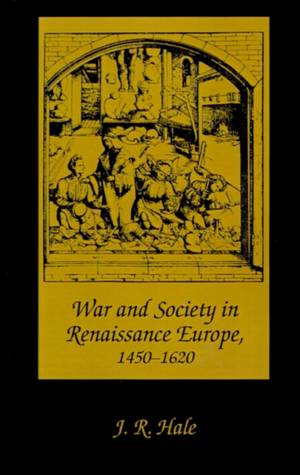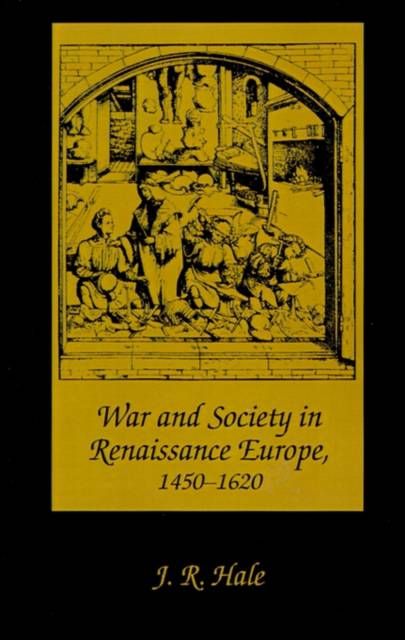
- Retrait gratuit dans votre magasin Club
- 7.000.000 titres dans notre catalogue
- Payer en toute sécurité
- Toujours un magasin près de chez vous
- Retrait gratuit dans votre magasin Club
- 7.000.000 titres dans notre catalogue
- Payer en toute sécurité
- Toujours un magasin près de chez vous
Description
In the modern view of Renaissance Europe, the rise of humanism often obscures violence and warfare. As J. R. Hale observes, "there was probably no single period in which there was neither war nor occurrences that looked and felt remarkably like it." This major new assessment by one of the world's foremost Renaissance historians analyzes the impact of war on government, economy, technology, the military, and civilian life and broadens our conception of society in the early modern centuries.
From the end of the Hundred Years' War to the eve of the Thirty Years' War, Europe's population increased and its culture grew more complex; so too, its wars expanded from the episodes of "violent housekeeping" associated with succession to conflicts of territorial self-definition and quests for princely glory through acquisition. This book examines the devleopments in military technique and technology which both fueled and resulted from the changing nature of warfare.
Hale's main focus, however, is on the people--nobles and officials, merchantes and soldiers, peasants and townsfolk--whose lives were touched by war. He dicusses recruitment among mostly reluctany social groups and decribes conditions of service in the military for both professional and part-time soldiers. While the direct effects of war could be devastating for an area's populace, Hale shows that indirect effects, though less acute, were more pervasive. Economic and demographic shifts, increased and more efficient taxation, and governmental growth occasioned by war had profound and lasting influence on the shape of European society.
Spécifications
Parties prenantes
- Auteur(s) :
- Editeur:
Contenu
- Nombre de pages :
- 288
- Langue:
- Anglais
Caractéristiques
- EAN:
- 9780801831966
- Date de parution :
- 01-01-86
- Format:
- Livre broché
- Format numérique:
- Trade paperback (VS)
- Dimensions :
- 137 mm x 221 mm
- Poids :
- 376 g







